
Nikk Ogasa is a staff writer who focuses on the physical sciences for Science News, based in Tucson, Arizona. He has a master's degree in geology from McGill University, where he studied how ancient earthquakes helped form large gold deposits. He earned another master's degree in science communication from the University of California, Santa Cruz. His stories have been published in Science, Scientific American, Mongabay and the Mercury News, and he was the summer 2021 science writing intern at Science News.

Trustworthy journalism comes at a price.
Scientists and journalists share a core belief in questioning, observing and verifying to reach the truth. Science News reports on crucial research and discovery across science disciplines. We need your financial support to make it happen – every contribution makes a difference.
All Stories by Nikk Ogasa
-
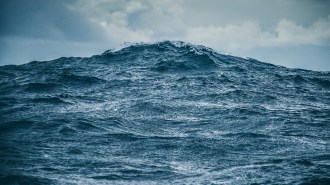 Oceans
OceansThis AI can predict ship-sinking ‘freak’ waves minutes in advance
The model, which was trained on data from ocean buoys to identify potential rogue waves, could help save lives.
-
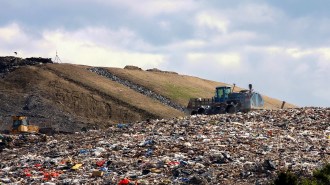 Environment
EnvironmentLandfills belch toxic ‘forever chemicals’ into the air
An analysis of samples from three Florida landfills shows that landfill gas can carry more PFAS than the liquid that leaches from the waste.
-
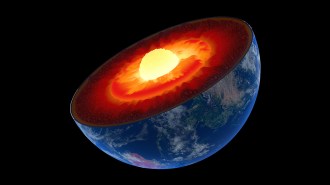 Earth
EarthSomething weird is happening to Earth’s inner core
A new study claims to confirm that the inner core is now rotating more slowly than it was over a decade ago, but some researchers remain skeptical.
-
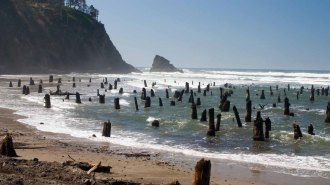 Earth
EarthGeoscientists found the most dangerous part of a famous West Coast fault
Seismic data reveal that the Cascadia megathrust consists of at least four segments, the most dangerous of which may lurk offshore of Washington.
-
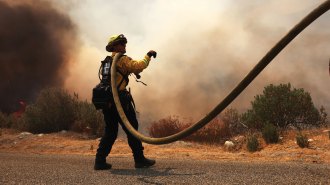 Environment
EnvironmentA new approach to fighting wildfires combines local knowledge and AI
Land managers in the western United States are using potential operational delineations, or PODS, to prepare for — and take advantage of — wildfires.
-
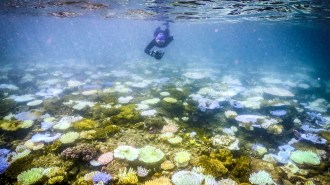 Climate
ClimateThree reasons why the ocean’s record-breaking hot streak is devastating
Ocean warming enhances hurricane activity, bleaches coral reefs and melts Antarctic sea ice. That warming has been off the charts for the past year.
-
 Health & Medicine
Health & MedicineA new U.S. tool maps where heat will be dangerous for your health
The daily updated HeatRisk map uses color coding to show where the health threat from heat is highest and offers tips on how to stay safe.
-
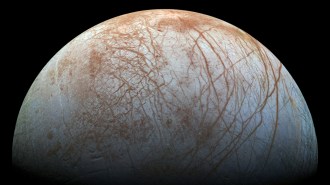 Planetary Science
Planetary ScienceOur picture of habitability on Europa, a top contender for hosting life, is changing
The moon of Jupiter is considered one of the most promising places to look for life, but its subsurface ocean may be less habitable than once thought.
-
 Planetary Science
Planetary ScienceJupiter’s moon Io may have been volcanically active ever since it was born
An analysis of the moon’s atmospheric composition suggests that it has been spewing sulfur for roughly 4.6 billion years.
-
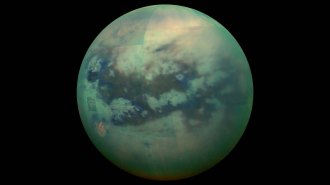 Planetary Science
Planetary ScienceTitan’s dark dunes could be made from comets
Saturn’s largest moon could have gotten its sands from an ancient reshuffling of the solar system. If true, that would solve a long-standing mystery.
-
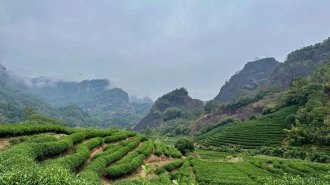 Agriculture
AgricultureMixing up root microbes can boost tea’s flavor
Inoculating tea plant roots with nitrogen-metabolizing bacteria enhances synthesis of theanine, an amino acid that gives tea its savoriness.
-
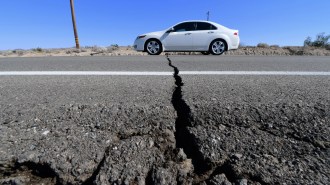 Earth
EarthWhere are U.S. earthquakes most likely? A new map shows the hazard risks
Updates to the National Seismic Hazard Model have elevated the average ground shaking hazard across the country.